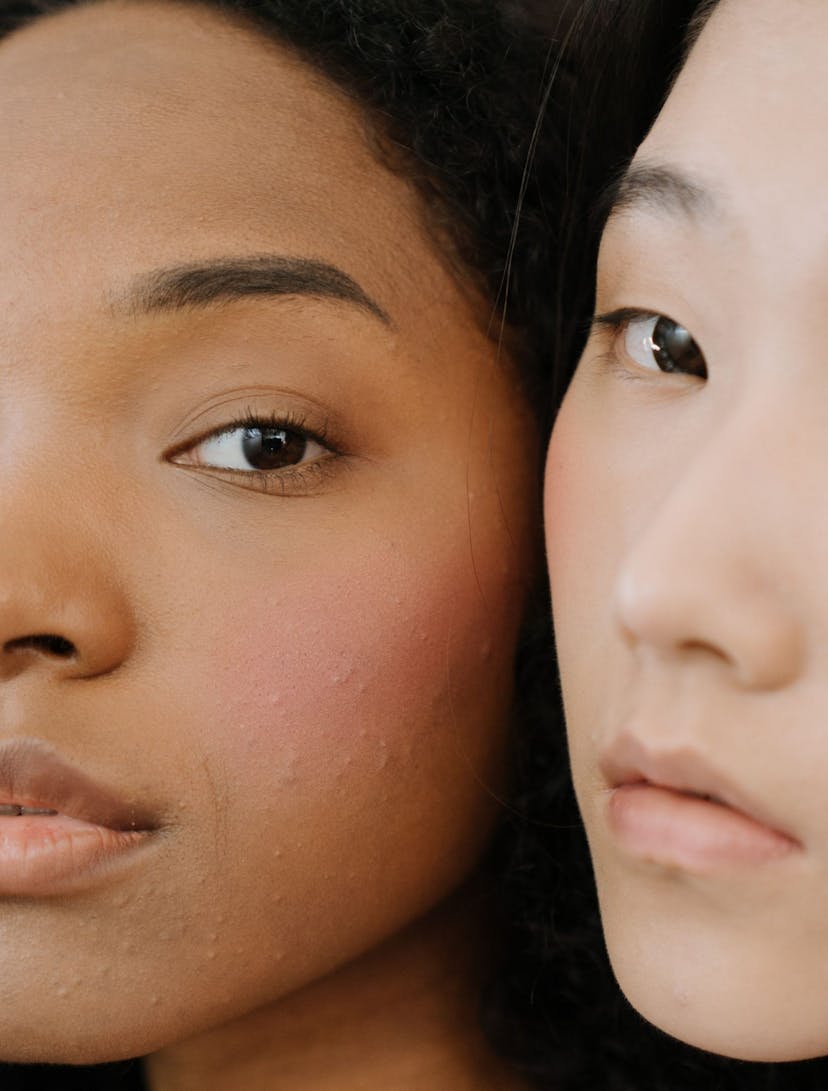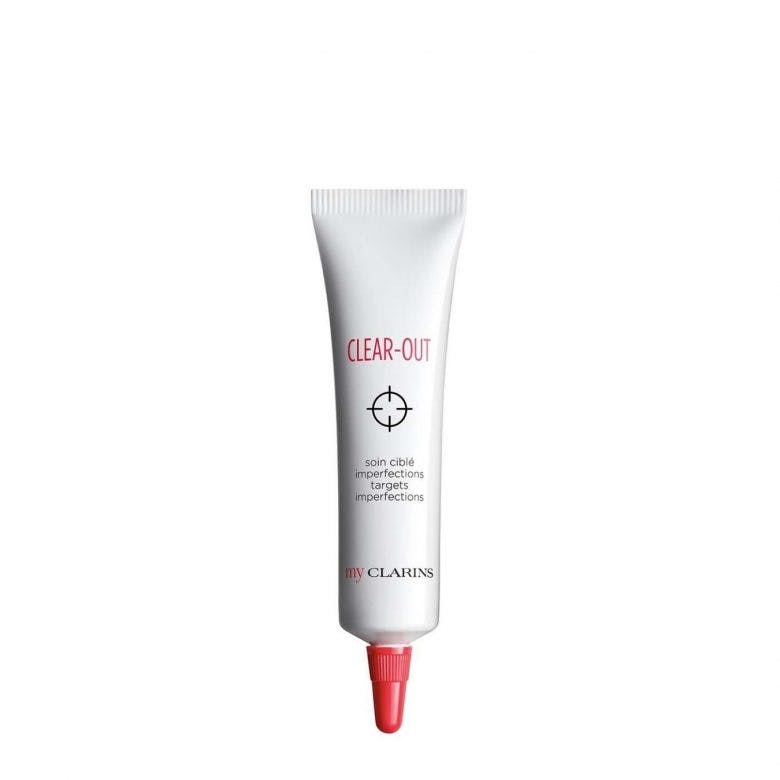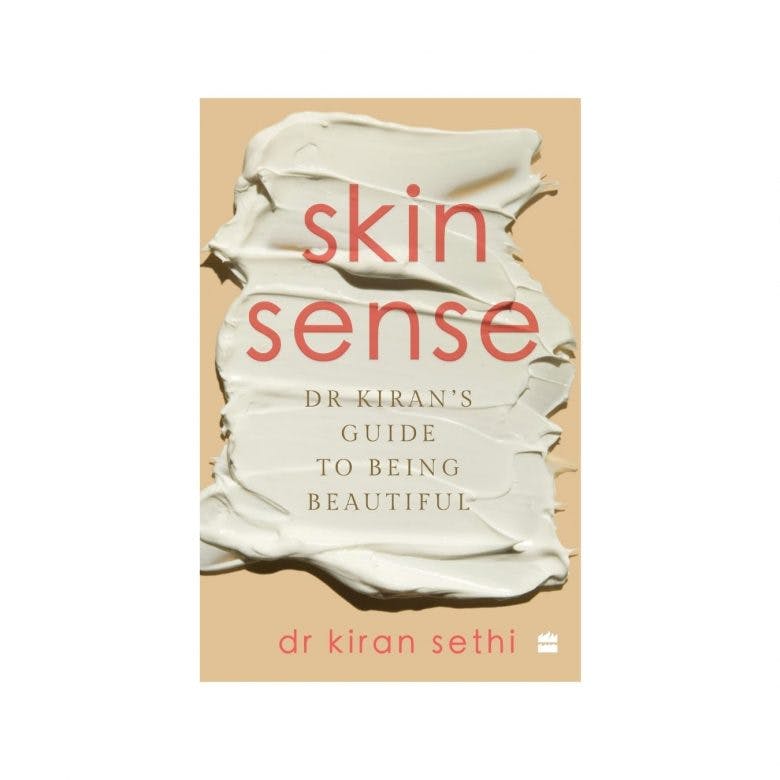How To Deal With Your PCOS Acne, According To Experts
6 minutes read
PCOS or polycystic ovary syndrome is the most common reproductive disorder, but much about it remains not well understood.
It is a hormonal disorder that is often undiagnosed that could manifest in the body in multiple ways: from irregular periods, unexplainable weight gain, mood swings, excess growth of facial and body hair, to the famous unsqueezable zits called PCOS Acne.
If you have PCOS, you’re not alone. One in 10 women in the UK suffers from it, and more than 50% remain undiagnosed.
“PCOS has become an epidemic of truly epic proportions. Every other woman who comes into my clinic has some symptom or aspect of PCOS, and I know it can be troublesome. It is so insidious and prevalent, that we now consider PCOS to be a syndrome more than a disease. It means that you are not diseased – it’s not an illness that can be cured,” Skin & Wellness Expert and International Best-Selling Author of Skin Sense, Dr Kiran Sethi, MD, tells Beauty Daily.
She adds: “Your body has metabolically changed so that it is now much more sensitive to things it could have previously handled with ease. To have PCOS means that your body has become a highly sensitive machine – and your body is triggered by changes in food, weather, moods, stress, schedule changes, jetlag, etc.”
There’s no cure for PCOS, but the symptoms can be managed and treated. We spoke to experts about everything you need to know about PCOS and how it can affect your skin. From PCOS skin problems to skincare and diet.

How does one know they have PCOS?
“PCOS has a complex diagnostic process referred to as the Rotterdam criteria, requiring two or three factors: 1.) irregular menstrual cycles, 2.) clinical excess androgens (e.g. excess hair growth, acne, male pattern balding) or biochemical androgen excess, and 3.) multiple immature follicles are seen on a pelvic scan that is less than 10mm,” explains Dr Martin Hirsch, Consultant Gynaecologist and Endometriosis Surgeon at Oxford University Hospitals explains.
If you have at least two of these features, you may be diagnosed with PCOS. However, Dr Sethi says: “But they [women] may also have normal periods and standard hormone levels, but exhibit symptoms in keeping with PCOS.”
Every woman suffers different and unique symptoms which lead to difficulties and delays in diagnosing the condition. The exact cause of PCOS is not known and this is due to a lack of funding.
PCOS Acne Symptoms: What does PCOS Acne look like?
Experts say the elevated levels of androgen result in more hormones attaching to the skin, which leads to an increase in the size and oil production of the sebaceous glands. This then leads to more hair follicles becoming blocked and acne forming.
It can exacerbate or worsen all sorts of skin inflammations. However, Dr Sethi warns: “One can have one or some or all of these symptoms – everyone reacts differently.”
According to Dr Sethi, here are the tell-tale signs of PCOS Acne to watch out for:
- Acne on your jawline or chin
- Resistant or recurrent acne
- Hairy beard-like growth on your face
- Excess hair on your chest, tummy, back or thighs
- Hair thinning and hair fall from your scalp
- Irregular periods (although many people with PCOS have regular periods)
- Weight gain or difficulty losing weight
- Insulin resistance or early pre-diabetes
- Acanthosis nigricans (darkening on neck, underarms, knuckles – a sign of insulin resistance)
- Difficulty with fertility
- Ultrasound with multiple cysts
PCOS Acne Topical & Treatments: How do I get rid of PCOS acne?
Expert-approved ways to treat PCOS acne.
1. Skincare
The American Academy Of Dermatology Association recommends that people with PCOS-induced acne follow general advice about caring for the skin and preventing breakouts, such as adopting or starting a rock-solid skincare routine, and never pick, pop or squeeze PCOS acne.
For tiny pimples, Dr Mia Jing Gao, Consultant Dermatologist at Royal Free Hospital, London, recommends: “Apply a targeted cream or gel containing salicylic acid or benzoyl peroxide daily to acne spots to reduce the inflammation.”
Beauty Daily recommends salicylic-acid-based spot treatment such as My Clarins CLEAR-OUT Targets Imperfections.

For big acne, “You cannot ‘clean’ spots away, so I always warn patients away from harsh exfoliating cleansers, which further disrupt the skin barrier and can worsen spots,” Dr Gao says.
However, treating the root cause or underlying hormonal imbalance is the only way to clear PCOS acne. Best to consult with your trusted practitioner about the acne treatment regime.
Read next: Top 10 Common Causes Of Acne
2. Oral contraceptives or hormone therapy
Hormone therapies and contraceptive pills are also an option as they increase levels of the hormone oestrogen in the body.
Experts say oestrogen has the opposite effect of androgen on the skin’s oil glands and encourages them to produce less acne-causing oil.
However, Dr Sethi has her reservations.
“I try to treat PCOS mostly without oral contraceptives or hormones because coming off the pill has its own trauma, and the pill seems to hide the issue, not cure it. We saw this with diabetes as well. We started medicating diabetes, instead of lifestyle modification, and now we have learned how reversible diabetes can be, especially in the first year. If we can change our lifestyle, we can avoid a lot of medications,” she says.
3. Food
What food is good for PCOS acne?
Experts suggest cutting out high glycaemic foods (e.g. sugar and sugary foods and beverages, white bread, potatoes, white rice etc.) to help reduce insulin resistance.
Elevated insulin levels stimulate the secretion of androgens and cause increased production of sebum, leading to acne breakouts. Avoid dairy as it contains a lot of hormones that can worsen the imbalance in the body. “Keep a food diary to identify any triggers and trial a period without that food to see if it will help,” Dr Gao advises.
Adopting a fibre-rich or ‘rainbow diet‘ is ideal. “Food is the real medicine. Of course, food and diet can’t cure everything, and you may need medication, but let’s use it only when absolutely needed. Intermittent fasting is a great addition as well. Diet is key!” she explains.
Read next: How Fasting Benefits Your Skin And Body
4. Supplement
Magnesium supplement:
“Magnesium is a great supplement for this – 300–350 mg taken at night for three to six months has shown to improve PMS acne and symptoms significantly. Also, taking 40–100 mg of vitamin B6 has proven beneficial, but don’t exceed the dosage,” Dr Kethi recommends.
Anti-androgen supplement:
She also recommends taking natural anti-androgen supplements if needed for three to six months under the guidance of your doctor.
Check out SKIN SENSE: Dr. Kiran’s Guide to Being Beautiful here.

Medical Disclaimer: Always seek the advice of a gynaecologist, dermatologist, or other qualified health providers with any specific questions you may have regarding PCOS and PCOS acne. Never disregard professional medical advice or delay seeking it because of something you have read on the Beauty Daily website.
Sign up for our newsletter
We will keep you in the loop for special offers, exclusive gifts and product news.

